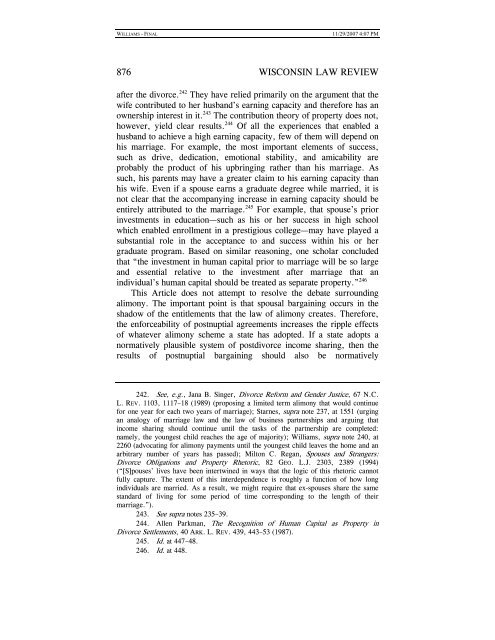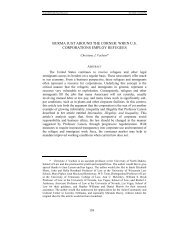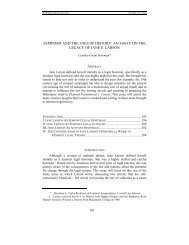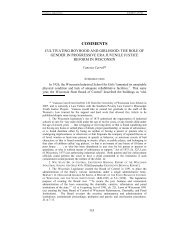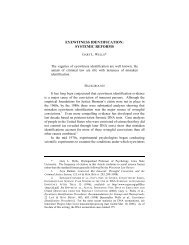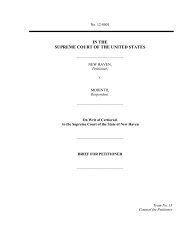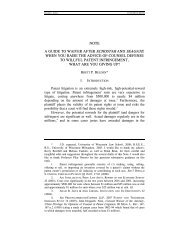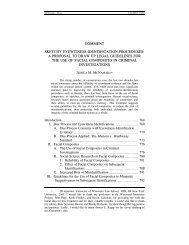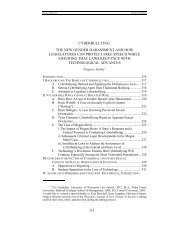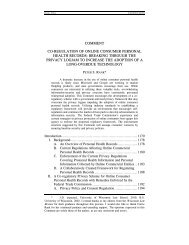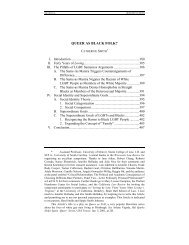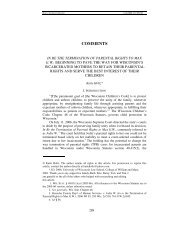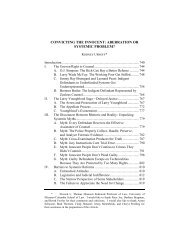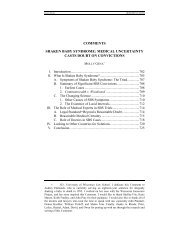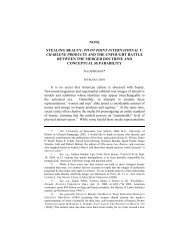POSTNUPTIAL AGREEMENTS - UW Law School
POSTNUPTIAL AGREEMENTS - UW Law School
POSTNUPTIAL AGREEMENTS - UW Law School
You also want an ePaper? Increase the reach of your titles
YUMPU automatically turns print PDFs into web optimized ePapers that Google loves.
WILLIAMS - FINAL 11/29/2007 4:07 PM<br />
876 WISCONSIN LAW REVIEW<br />
after the divorce. 242 They have relied primarily on the argument that the<br />
wife contributed to her husband’s earning capacity and therefore has an<br />
ownership interest in it. 243 The contribution theory of property does not,<br />
however, yield clear results. 244 Of all the experiences that enabled a<br />
husband to achieve a high earning capacity, few of them will depend on<br />
his marriage. For example, the most important elements of success,<br />
such as drive, dedication, emotional stability, and amicability are<br />
probably the product of his upbringing rather than his marriage. As<br />
such, his parents may have a greater claim to his earning capacity than<br />
his wife. Even if a spouse earns a graduate degree while married, it is<br />
not clear that the accompanying increase in earning capacity should be<br />
entirely attributed to the marriage. 245 For example, that spouse’s prior<br />
investments in education—such as his or her success in high school<br />
which enabled enrollment in a prestigious college—may have played a<br />
substantial role in the acceptance to and success within his or her<br />
graduate program. Based on similar reasoning, one scholar concluded<br />
that “the investment in human capital prior to marriage will be so large<br />
and essential relative to the investment after marriage that an<br />
individual’s human capital should be treated as separate property.” 246<br />
This Article does not attempt to resolve the debate surrounding<br />
alimony. The important point is that spousal bargaining occurs in the<br />
shadow of the entitlements that the law of alimony creates. Therefore,<br />
the enforceability of postnuptial agreements increases the ripple effects<br />
of whatever alimony scheme a state has adopted. If a state adopts a<br />
normatively plausible system of postdivorce income sharing, then the<br />
results of postnuptial bargaining should also be normatively<br />
242. See, e.g., Jana B. Singer, Divorce Reform and Gender Justice, 67 N.C.<br />
L. REV. 1103, 1117–18 (1989) (proposing a limited term alimony that would continue<br />
for one year for each two years of marriage); Starnes, supra note 237, at 1551 (urging<br />
an analogy of marriage law and the law of business partnerships and arguing that<br />
income sharing should continue until the tasks of the partnership are completed:<br />
namely, the youngest child reaches the age of majority); Williams, supra note 240, at<br />
2260 (advocating for alimony payments until the youngest child leaves the home and an<br />
arbitrary number of years has passed); Milton C. Regan, Spouses and Strangers:<br />
Divorce Obligations and Property Rhetoric, 82 GEO. L.J. 2303, 2389 (1994)<br />
(“[S]pouses’ lives have been intertwined in ways that the logic of this rhetoric cannot<br />
fully capture. The extent of this interdependence is roughly a function of how long<br />
individuals are married. As a result, we might require that ex-spouses share the same<br />
standard of living for some period of time corresponding to the length of their<br />
marriage.”).<br />
243. See supra notes 235–39.<br />
244. Allen Parkman, The Recognition of Human Capital as Property in<br />
Divorce Settlements, 40 ARK. L. REV. 439, 443–53 (1987).<br />
245. Id. at 447–48.<br />
246. Id. at 448.


